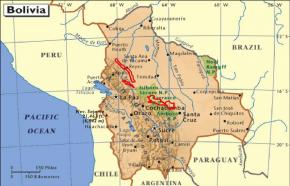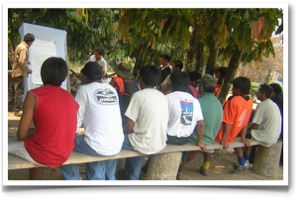Carbon offset
With extraordinary plantation forestry projects in developing countries
Plantation forestry and conservation: ArBolivia
The project
In 2007 Sicirec started the ArBolivia project in Bolivia. In this project 2,000 smallholders plant 5,000 hectares of their own land with high quality, predominantly indigenous tropical hardwood tree species.
Additionally, some 1,000 hectares are designated for agroforestry and, in conformity with the Sicirec Formula, 1,200 hectares as permanently protected nature reserve. The total project area thus covers 7,200 hectares.
The project areas are located at the foot of the Andes and on the edge of the Amazon Basin in various Bolivian provinces.

The project greatly improves the smallholders' income. Although the smallholders participate in the project with only a small part of their property, ArBolivia develops a land use plan for their full property. Moreover, training and advice are important aspects of the project.
In 2009 the first subsection of the project was registered with the United Nations as a Kyoto-project. The project will also be certified according to the CCB Standards, in which the project is likely to receive a ‘Gold’ rating.
For further information you may also visit the ArBolivia web site.
The CO2 rights
The first sub-project has been registered as a Kyoto project with the United Nations. For this purpose, the project was validated by the Japanese organisation JACO CDM.
The project has also applied for accreditation by the CCBA and it is already clear that the project will receive a “gold” rating shortly.
This special qualification shows that the project sustains an excellent integration of reforestation, nature preservation, and livelihood improvement of the local population.

The project produces a total of 1,650,000 tonnes of Certified Emission Reductions (CERs). 280,000 tonnes of these have already been sold to a European government for three consecutive validity periods. This government has taken an option to also purchase another 600,000 tonnes for two validity periods. 440,000 tonnes have been sold to another party.
The remaining 330,000 tonnes of the CO2 rights will be set aside as a buffer for unforeseen events.


